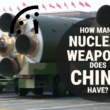Turkey’s nuclear contradictions
By Mustafa Kibaroglu, September 17, 2015
My Round Two essay, which argued that Japan's stockpile of plutonium undercuts the disarmament message of the Hibakusha, seems to have been the inspiration for my colleague Akira Kawasaki to discuss "the double standards inherent in Japan's nuclear policies." Here in Round Three, I'll reciprocate by discussing the nuclear double standards of my own nation, Turkey.
Turkey is a member in good standing of the nonproliferation and disarmament regimes—a signatory to instruments such as the Nuclear Non-Proliferation Treaty and the Comprehensive Nuclear Test Ban Treaty and a member of initiatives such as the Zangger Committee and the Nuclear Suppliers Group. Moreover, it has long advocated creating a nuclear-weapon-free zone in the Middle East. Turkish officials, in view of the Middle East's increasingly dire security situation, portray establishing a nuclear-weapon-free zone as a matter of urgent collective responsibility.
But Turkey is also a member of NATO, and in the context of the alliance's security strategy and its principles of solidarity and burden sharing, Ankara has for decades allowed US nuclear weapons to be deployed in Turkish territory. Officials believe these weapons strengthen Washington's commitment to transatlantic security and contribute to the credibility of extended deterrence.
So on one hand, Turkey is committed to a world free of nuclear weapons. On the other hand, Ankara allows US nuclear weapons within its territory and emphasizes that disarmament will require time and patience—indeed, that total disarmament will not be possible any time soon. This contradictory approach diminishes Turkey's stature in the nonproliferation and disarmament regimes—at least in the eyes of Turkey's Middle Eastern neighbors, whose cooperation is indispensable if a nuclear-weapon-free zone in the region is to be established. To eliminate the contradiction and establish consistency with Turkey's long-stated principles, Ankara should—through a deliberate review process and close consultations with Washington—begin the process of returning tactical nuclear weapons to the United States.
Turkish officials might argue that sending US weapons back where they belong would undermine Turkey's security. But even as NATO-Russia relations worsen amid developments in Ukraine, imagining a "hot" confrontation between NATO and Russia—let alone a nuclear exchange—is, in the language of the strategist Herman Kahn, "thinking about the unthinkable." Even if such a scenario played out, tactical nuclear weapons would barely play a role!
Moreover, NATO could provide extended deterrence to Turkey through means other than basing nuclear weapons on Turkish soil. For example, US nuclear-armed submarines could temporarily be deployed in the eastern Mediterranean. They could pay port visits to Turkey. Steps such as these would deliver a powerful message to unfriendly countries. For that matter, no nuclear weapons are deployed in 20 of 28 NATO nations, but all 28 are covered under the alliance's nuclear umbrella.
Paradoxically, should nuclear weapons be withdrawn from Turkey, some Western experts might look suspiciously at Turkey’s plans for nuclear power, wondering if Ankara intended to develop nuclear weapons of its own. But Turkey would have no security-based incentive to follow such a course. And embarking on a nuclear weapons adventure would complicate Turkey's already strained relations with the European Union, damaging Turkish ambitions for eventual EU membership.
Other European nations that host US nuclear weapons have engaged in their own debates about whether to retain them. Germany, Italy, the Netherlands, and Belgium—all have expressed willingness at least to discuss removing US nuclear weapons from the European continent. Some other countries, concerned about their security position vis-à-vis Russia, have resisted the idea (as has Turkey itself). But against such a backdrop, Turkey would not be out of place if it engaged in serious discussions about removing the weapons from its territory.
The Turkish public, meanwhile, isn't favorably disposed toward NATO and the United States these days. As NATO has transformed itself from a collective defense organization with a "hard power" stance into a collective security organization with a "soft power" stance, its powerful image has been diluted. NATO is increasingly seen as primarily serving US interests and maintaining US hegemony. Anti-American sentiment is pervasive in Turkey today, and removing US nuclear weapons from Turkish soil would likely be a popular step.
Hosting US nuclear weapons does little to enhance Turkish security. But it undermines Turkey's nonproliferation and disarmament credentials and rankles the Turkish public. The time has come for Washington to take its weapons home.
Topics: Nuclear Energy, Nuclear Weapons
Share: [addthis tool="addthis_inline_share_toolbox"]














